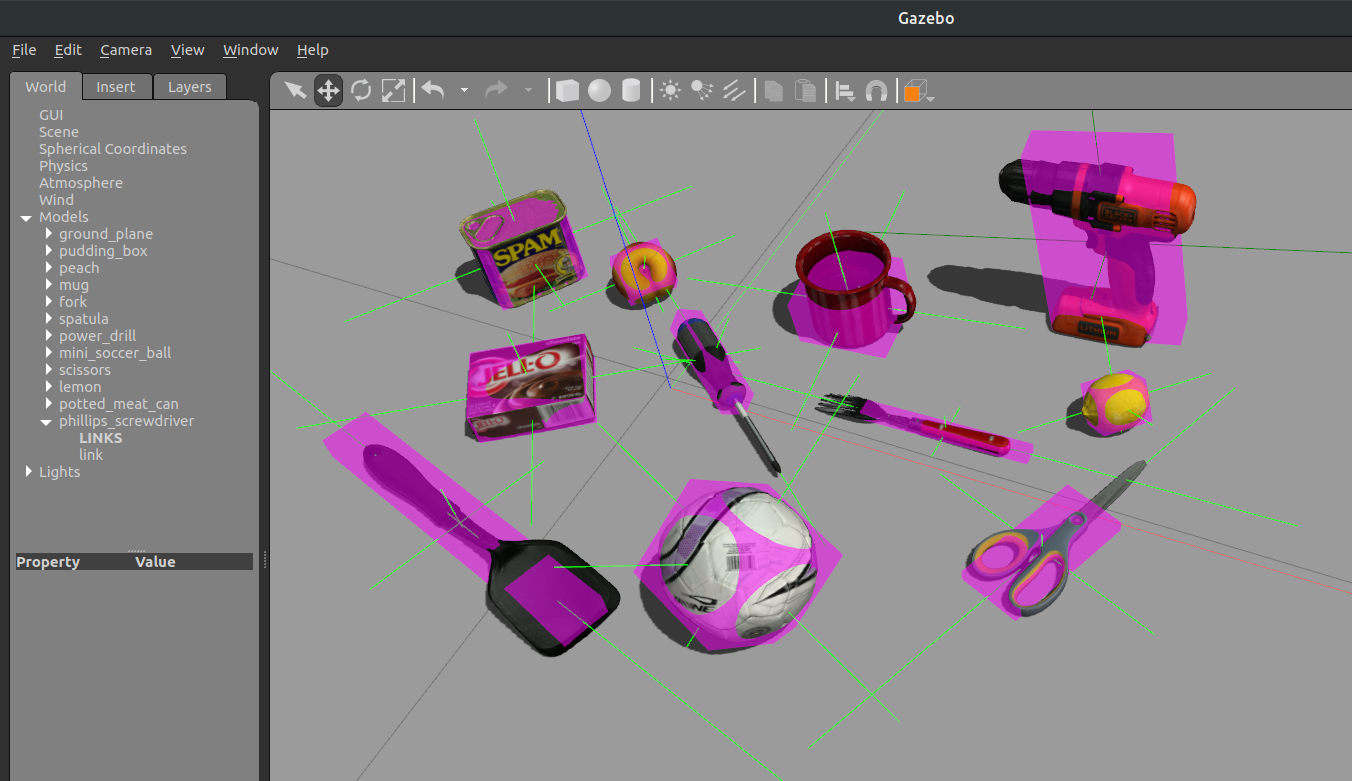Tools to download models from the YCB dataset and use them with the Gazebo simulator.
By Sebastian Castro, 2020
Note:
- Some of the 512k objs are missing even if the website did not mark it as N/A. (Objects that are missing: 30, 31, 32, 62 63b, 72d, 72e, 76), you can download 16k or 64k instead.
- Object 25 rgbd files has a different path (
/home/bcalli/Desktop), so the auto extract code not work for this object, you can move to correct place manually.
You only need to install a few Python packages to get these tools running.
pip install numpy pillow scipy shapely trimesh
You can download the models using a variant of the download script provided on the YCB site. However, this script has been modified to work with Python 3.
python download_ycb_dataset.pyYou can configure a few options in the script, including choosing which objects and model types to download. However, the default options will get all of the YCB object models and may take a few minutes to download.
After you have downloaded the YCB models, you can run the following script, ensuring you have set the folder names at the top to match your environment.
python create_ycb_sdf.pyThere is a downsample_ratio parameter set in this script which uses rejection sampling to randomly remove faces from the mesh to get a subset of faces. This downsampled mesh is used only for collision detection, so it will not affect the visuals, but it should make simulation faster if you don't need perfect collision fidelity. The Google 16k meshes are fairly high-resolution, so this should not have a huge impact, but if you want the full meshes used for collision, you can set this parameter to 1.
NOTE: A few of the models in the dataset do not have either of the google_16k or tsdf meshes available, so these will not work with Gazebo.
Finally, you need to make sure the folder containing your models is included in your GAZEBO_MODEL_PATH environment variable. We recommend setting this in your ~/bashrc file as follows.
export GAZEBO_MODEL_PATH=$GAZEBO_MODEL_PATH:$REPO_BASE_FOLDER/models/ycb
where $REPO_BASE_FOLDER is the folder containing this README file.
